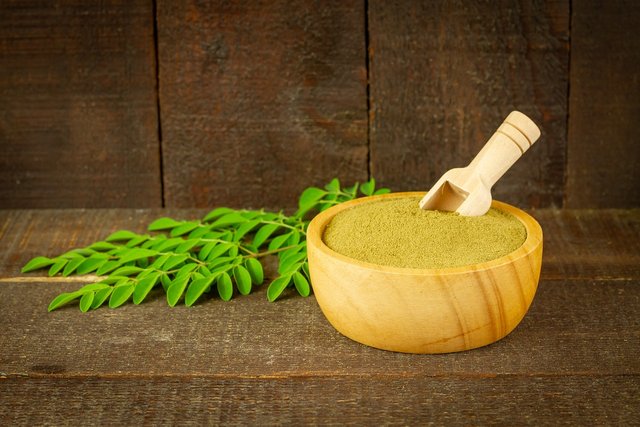Moringa leaves are known as one of the natural ingredients that can help smooth breast milk production. However, the benefits of moringa leaves are not limited to that. In fact, these small, round leaves can be processed into natural medicine to relieve or cure various diseases. The benefits of moringa leaves come from the various nutrients contained in them, such as vitamins A, B, C, protein, magnesium, iron, potassium, and folic acid.
- Digestive disorders
Moringa leaves can be used to treat diseases related to digestive disorders. These benefits come from the fiber content in moringa leaves. Fiber can slow down the digestive process in the body, increase satiety, and support digestive function. Fiber can also help smooth bowel movements and prevent constipation.
- Diabetes
Moringa leaves are also believed to have the potential to lower blood sugar levels and prevent diabetes. A study conducted on 30 women found that supplementing 1.5 teaspoons of moringa leaf powder every day for three months can lower fasting blood sugar levels by 13.5 percent. A similar study also found that adding 50 grams of moringa leaves to food can reduce the risk of high blood sugar by 21 percent. However, more human studies are needed to truly confirm this benefit.
- Rheumatoid Arthritis
Rheumatoid arthritis is an autoimmune disease that causes inflammation in the joints. Researchers found that the isothiocyanate antioxidant content in moringa leaves has anti-inflammatory properties that can reduce or relieve inflammation in the body.
- Hypertension
The benefits of moringa leaves for treating hypertension come from the potassium they contain. Potassium can help lower blood pressure by balancing sodium in the body. Sodium is a substance that causes blood pressure to rise. Therefore, consuming moringa leaves regularly can help keep blood pressure stable, thereby preventing the risk of hypertension.
- Anemia
The vitamin C content in moringa leaves can help increase the absorption of iron from food and supplements. This makes moringa leaves suitable for consumption by people with anemia, especially those caused by iron deficiency.
- Osteoporosis
Moringa leaves are also rich in phosphorus and calcium which are very important for bone health. Because moringa leaves also have anti-inflammatory properties, this plant can also help bone damage caused by inflammation. Moringa leaf supplementation is also associated with a reduced risk of osteoporosis.
- Viral and bacterial infections
The vitamin C in moringa leaves can help build the body's immune system, making it stronger against viral and bacterial infections that cause disease. Several studies have also shown that moringa leaves can inhibit the growth of certain bacteria, such as Streptococcus aureus and Escherichia coli.
- Cancer
Moringa leaves contain various antioxidants that can protect cells and tissues in the body from the effects of free radicals. Free radicals are dangerous molecules that can trigger the risk of cancer. Moringa leaf extract is also believed to inhibit the growth of cancer cells.


